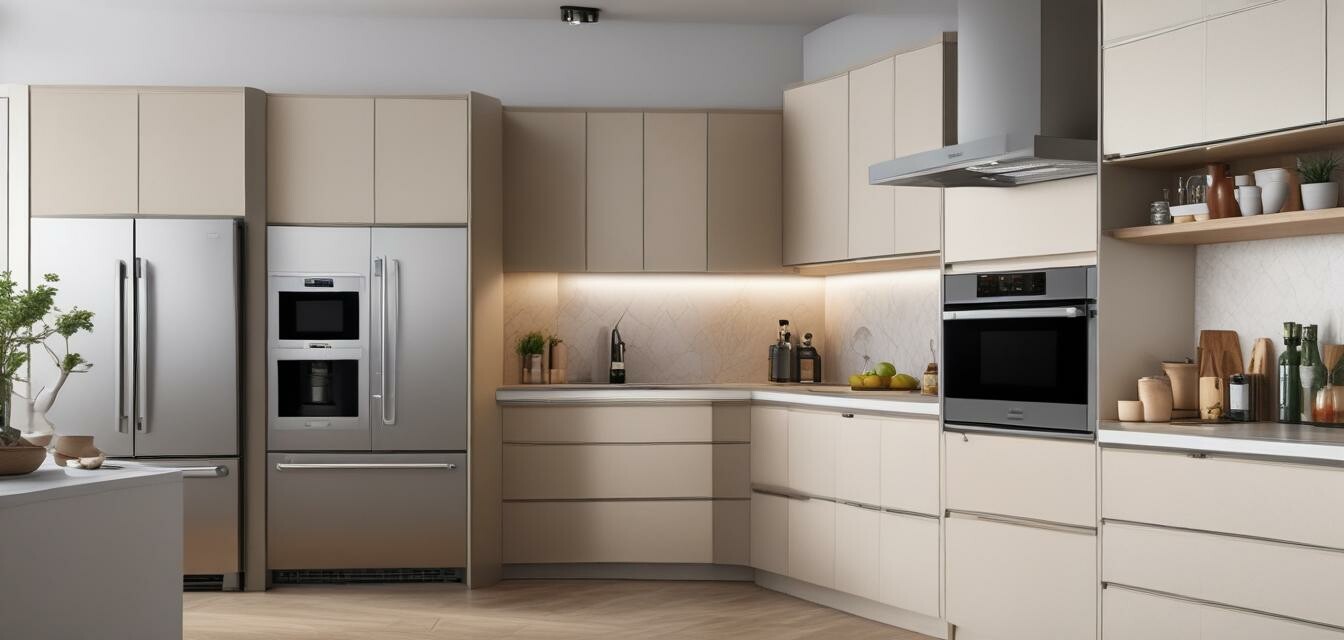
Sustainable cooking with smart kitchen appliances
Key Takeaways
- Smart kitchen appliances enhance energy efficiency, reducing overall kitchen energy consumption.
- These devices can monitor and adjust their usage, leading to less food waste and resource waste.
- Incorporating smart technology into cooking not only saves time but also promotes eco-friendly cooking habits.
- Utilizing energy-efficient appliances contributes significantly to a sustainable lifestyle.
In today's modern world, sustainable cooking is more than just a trend; it’s a necessary lifestyle adjustment. With the rise of smart kitchen appliances, home cooks have unprecedented tools to help make their cooking practices not just easier but also more environmentally friendly. In this article, we will explore how these high-tech gadgets promote sustainable cooking habits, focusing on energy efficiency and waste reduction strategies suitable for an eco-conscious lifestyle.
How smart kitchen appliances contribute to sustainability
Embracing smart technology in your kitchen can significantly influence how you prepare meals and manage resources. Here are several ways these devices aid sustainable cooking:
- Energy efficiency: Many smart appliances are designed to consume less power, making them ideal for energy-conserving households.
- Precise cooking: Smart ovens and stoves can use sensors to cook food at the optimal temperature, reducing energy waste.
- Data analysis: Smart appliances can track usage patterns, helping users identify areas where they can improve their efficiency.
- Waste reduction: Appliances that can monitor expiration dates and adjust cooking times can prevent food spoilage.
Energy-efficient appliance options
Switching to energy-efficient kitchen appliances is one of the best decisions for both your kitchen and the environment. Here is a quick comparison of popular types of smart appliances and their energy-saving features:
| Appliance Type | Energy Efficiency Features | Benefits |
|---|---|---|
| Smart Ovens | Adaptive heating, energy use tracking | Cook food evenly while saving energy |
| Smart Refrigerators | Temperature monitoring, efficient cooling systems | Reduce food waste with better preservation |
| Touchless Faucets | Automatic shut-off, water conservation features | Save water and energy easily |
| Bluetooth-Enabled Cookware | App monitoring, temperature control | Perfectly cooked meals without excess energy use |
Waste reduction strategies with smart appliances
In addition to being energy efficient, smart appliances also significantly help in reducing kitchen waste. Here are some effective strategies:
- Smart inventory tracking: Use appliances that can help keep track of inventory, alerting you when items are nearing expiration.
- Utilizing cooking modes: Use modes that suggest portion sizes based on the number of servings, preventing over-preparation.
- Compost functions: Some smart appliances are integrated with composting options to recycle food scraps efficiently.
Real-life examples of sustainable cooking
Here are some scenarios illustrating how smart kitchen appliances can promote a more sustainable cooking approach:
- Meal Planning: Use a smart refrigerator that monitors your ingredients, suggesting recipes based on what you already have, thereby reducing food waste.
- Smart Cooking: A smart oven allows you to monitor cooking progress remotely, optimizing cooking times to prevent energy waste and overcooked meals.
- Water Saving: Touchless faucets regulate water flow, using less water while still allowing you to rinse or wash ingredients easily.
Integrating smart technology into your cooking routine
So, how do you start incorporating these smart appliances into your kitchen routine? Here are some practical steps to get started:
Tips for beginners
- Start with one appliance at a time, such as a smart oven, to ease into new technology.
- Use mobile apps associated with your appliances to enhance your culinary experience and track your energy usage.
- Read manuals and tutorials to better understand the functionalities of your new devices.
- Consider joining community forums for smart appliance users to share tips and experiences.
For more in-depth information on specific appliance categories, check out our articles on energy-efficient appliances or touchless faucets for additional insights.
Pros
- Improves energy efficiency in cooking.
- Reduces food waste significantly.
- Promotes eco-friendly habits in the kitchen.
Cons
- Higher upfront costs for smart appliances.
- Requires initial setup and learning new technologies.
- Dependency on technology can be daunting for some users.
Final thoughts
In conclusion, sustainable cooking is now easier than ever with the help of smart kitchen appliances. By selecting energy-efficient options and incorporating waste reduction strategies, you can contribute positively to the environment while cooking delicious meals. Transitioning to a smarter kitchen opens up a world of possibilities for both your cooking and the sustainability of your home.
For more tips on how to make your kitchen smarter, visit Smart Kitchen Tips for valuable insights and ideas.